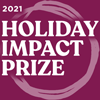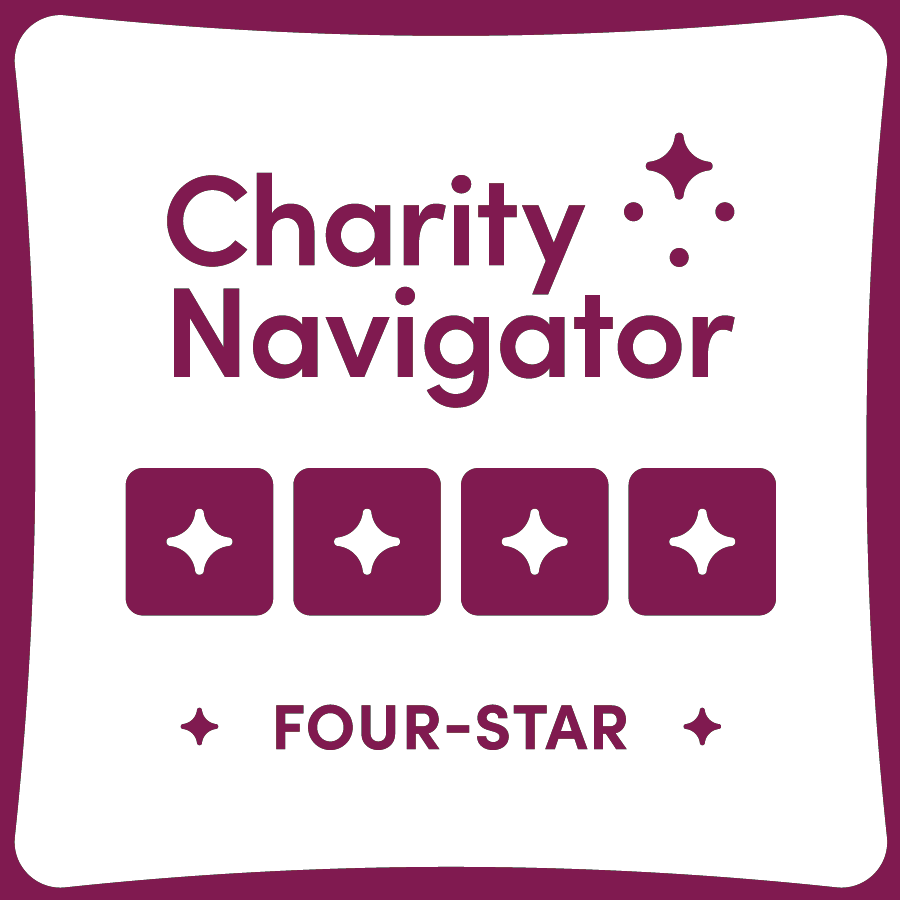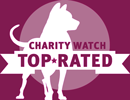Supporting women to become leaders in the field of eye care, and increasing women’s access to eye care, are two of Seva’s top priorities. We are proud to feature these five women and their inspirational stories.
Parami Dhakhwa
NEPAL
Parami is the Assistant Program and Finance Manager at Seva’s Nepal office. She is a key member of our local staff working to collect data from our partner hospitals, coordinate studies, support community education, and manage grants.
How did you first get involved with Seva?
Before becoming a Seva staff member I was a recipient of a Seva service because my brother was helped by Seva to cure an eye problem. Seva provided for his support for his treatment. Now he has a normal life and I so appreciate what Seva has done for my brother. After that my father worked for Seva for several years, and then I joined, I feel so connected to Seva. It is a part of my family. That is how I got involved with Seva.
Tell us about the gender disparity in eye care in Nepal and what Seva is doing to bridge the gap.
We see at hospitals that there are more men coming in for the services than females. Seva has strategies to increase the number of female patients coming in. One is to do outreach activities and establish eye care centers near to the community so that female patients don’t have to travel all the way to a city or big hospital. Another is to do a lot of training of Female Community Health Volunteers. We provide them with trainings on eye health. There are about 50,000 Female Community Health Volunteers in Nepal and they are the first point of contact for a lot of women in the communities.
Are these strategies working?
The data showed that urban hospitals saw 70% male versus 30% female patients. Thanks to Seva’s outreach programs, our eye care centers now see 50% women, which is a big increase in the number of female patients who are coming in.
What challenges have you faced as a woman with a career in eye care?
It is a male oriented society. If I go to big meetings it will often be all men, there will hardly be any women.
The situation for women in Nepal is very challenging. There are changes, my mother wasn’t allowed to study after 10th grade because it would have meant having to move to another city and that was not allowed. But for me, I could study and I could work.
But working still depends on which family you are married to, because it is the husband or father-in-law who decides if you can work or not.
But I can see the changes now, like at Lumbini Eye Hospital where Seva works, there are now more female ophthalmologists than male. Nepal recently got its first woman president. It is changing, and I’m hopeful that things will improve.
Sasipriya Karumanchi
INDIA
Sasipriya “Sashi” is a senior faculty mem- ber at Lions Aravind Institute of Community Ophthalmology (LAICO), in Madurai, India. Sashi heads the consulting services team who develops sustainable eye hospitals worldwide, including with many Seva partners.
Tell us a bit about your work.
We are in the business of doing eye care better, so that eye care in the developing world is delivered efficiently and effectively and that the communities are served.
In India, is there a gender disparity in eye care?
In our experience, men are more likely to have access to eye care. Women, though they might feel that they have some problem with their eyes, the immediate focus is, ‘ok if I’m going into a hospital or going in for surgery, who is going to take care of my family? Who will cook food for the children, or take care of day-to-day affairs.’ For them long term doesn’t come to mind, so that is one important issue we keep seeing.
Why are screening camps and outreach programs important to reach more women?
We see a lot of women accessing screening eye camps because they are very close. Depending upon their preparedness, they will go for surgery. Sometimes anxieties, or uncertainties are there. If someone can counsel them, they get motivated. And when we provide transport, it is easier because there is no need for anybody to accompany them.
Once a woman receives these eye care services, how will that impact her life, her family, and her community?
In general, when women undergo sight-restoring surgery she can again be independent. Being independent really makes a difference. Having that freedom and mobility. Most don’t want to be a burden to their family. So if it is cataract surgery or another surgery, it helps for them to be completely independent. And that’s something very important.
Tell us about your experience as a woman working in the field of eye care.
I come from an organization where the majority of staff are women, and we have a very strong woman leader, Dr. Natchiar. But in general it is not easy being a woman at work. You have to really struggle. In our experience, our staff are taking care of their families, and then com- ing into work and taking care of patients here.
Talk about how Seva has supported your work in particular.
We don’t even consider Seva a funding organization, they are more of an enabling partner. There is a very personal touch. They are able to relate and understand what the partner is doing. I think that personal relationship is very important because it is more collaborative. Then we can look for opportunities. When programs get very structured, there is little room for innovation. Learning and growing in the process of implementation can otherwise get lost. The Seva relationship is long-term, it is not just a transaction, it is not just one project and then they move on. Instead, you become very much a part of the organization. I feel that is something unique, and more helpful.
How is Seva’s support of your work unique?
Seva’s focus on personal development is important. Seva is also about the person behind the project, the person behind the work. I feel that is something very enriching, and very unique. If you hit a road- block they make an effort to help. There is this team whom we can rely on. So I think that personal relationship is very important.
Dr. Lindsey Marvel
NEW MEXICO
Dr. Marvel is an enrolled member of the Caddo Nation of Oklahoma and is Chief of Optometry at the Santo Domingo Health Center. Dr. Marvel works with patients who have a disproportionately high rate of diabetes and autoimmune diseases, which can create many complications for eye health. With Seva’s help, she is working to build a comprehensive eye care clinic for patients from Santo Domingo Pueblo and surrounding tribes.
How did you originally get interested in eye care?
I always enjoyed going to the eye doctor when I was younger, I’m pretty near sighted. I was always playing with microscopes and telescopes and different lenses and things that I would get at antique stores, and I always had lenses in my pocket. Vision has always been an interest.
What are some of the challenges of being a woman in your field?
Where I work, women are not allowed to ride horses, they elect a governor who is head of everything every year, and that can never be a woman, it’s always a man. So that’s kind of new to me, dealing with that. And sometimes I wonder, do the men trust what I’m saying, because I am a woman, are they going to trust me as much as they would a man? I know that sometimes as a woman, your voice isn’t heard, and you feel like you need to repeat yourself, or speak louder, or say it in a certain way, and sometimes I feel myself just being quiet. But I don’t let it get to me, and I just keep going.
Tell us about your clinic and how Seva donors are supporting your work.
The Santo Domingo Pueblo is between Albuquerque and Santa Fe. It is very traditional; things have not changed there too much. The size of the Pueblo is 2,500 people, and in the eye clinic we see Native people from the surrounding pueblos as well. When I first walked into the clinic, there was just one room with equipment, none of it worked. With Seva’s support, I was able to hire two technicians and set up an optical shop and it has really grown from there. Seva has done a lot, they bought an auto-refractor that really speeds up the eye exams. Seva also has a fund for our diabetic elders so that they can get a free pair of glasses. They can’t believe it, I tell them that they are going to be free this year, and they’re just so excited about it. Just the support too, having someone to talk to when things get frustrating, Seva has always been there to be supportive.
Sheri Red Shirt
NEW MEXICO
Sheri is an instructor at the Southwestern Indian Polytechnic Institute’s Vision Care program in Albuquerque, New Mexico. Her responsibilities include all aspects from student orientation, through their educational careers, and into job placement.
Tell us a bit about yourself.
I am originally from the Navajo Nation and am a graduate of the program where I now teach. Early on in my career, I began fabricating glasses, and then eventually went on to work with an ophthalmologist and optometrist. My career went fast from there. I teach Native American students from all over the United States in a two-year degree program and a one-year certificate program.
Do your female students face barriers to success?
Our gender roles are really significant among Native Americans. You have different reservations, tribes, and pueblos that still observe certain traditions, and a lot of that is the females staying at home and being caregivers or participating in their ceremonies. Which means education becomes secondary. It does reflect in absences and not attending certain key components of their education. So you have those cultural conflicts. It is difficult to sometimes have that conversation with students, especially female students. Hopefully their families are supportive and understand the importance of their education so that they will not have to rely on services, food stamps, or any other type of assistance.
I come from a background where any female can be successful. The opportunities that I have had, coming from the Navajo Nation, and the encouragement from my family, to try a little harder, and to keep going, put me in a position that came naturally to me. I encourage my female students who might not have that confidence about themselves.
How are Seva donors supporting your students and your program?
Seva has been a blessing to our program. Before being introduced to Seva, it was difficult to really budget. We have limited resources, not having the items that we need to truly practice and train. Seva’s supported us with lensometers and trial lens sets, and additional resources. Seva also covers a large portion of the cost of the American Board of Opticianary Certification exam. It gives my students something to work towards. It takes away a lot of the stress they had before Seva stepped forward.
Fortunate Shija
TANZANIA
Fortunate is the Microfinance and Eye Care Coordinator at Seva’s partner, the Kilimanjaro Centre for Community Ophthalmology (KCCO), based in Tanzania. She identifies potential microfinance groups in areas where there are outreach programs supported by KCCO and creates relationships between the women and the eye care programs.
Are eye care services in your region readily available?
Access to eye care services is poor. When I go to an average clinic, there will be one doctor, or practitioner who most of the time is not trained to do eye care, they might be trained to give eye drops and that’s it. So the serious conditions like cataract, trachoma, and others go unchecked.
Why are women accessing eye care less often than men?
A man has better access to a hospital, because in the family a man would have a bicycle or a motorcycle and have access to the money. In the rural areas, if there is a girl and boy child the same age, suffering with an eye problem and they have to take one of them, they would traditionally select the boy as a first priority.
Tell a bit about your work.
I started working with microfinance in eye care, to engage women in Africa, specifically trying to make eye care more accessible to women in rural areas.
How is the microfinance program helping to increase women’s access to eye care?
One of the primary barriers to accessing eye care is around decision-making. Women are not able to make decisions for the family because most of the time they are not the breadwinners. The strong women in the rural areas are the ones who have a source of money or earnings. Microfinance has been brought about to empower women. It is helping women in the rural areas to start small businesses. We work with these women to spread knowledge about eye care services that are available. We select representatives to be trained in eye care services, and we ask them to go and tell their customers. We tell them about all the possible surgical treatments, and they help us refer the patients. They have pictures and posters on display in their businesses. They keep repeating the message every day.
Was it a challenge for you as a woman to get an education in Tanzania?
Why should we educate a woman? That is the big challenge that most women face. They have to fight through a community that doesn’t approve. They will have to work more to show that they are important. The woman has to prove they are worthy. I worked hard and studied sciences and molecular biology. When I graduated, I was able to join Kilimanjaro Centre for Community Ophthalmology as the Childhood Blindness and Low Vision Coordinator.
Do you face obstacles in your everyday work because you are a woman?
In certain areas that I work, men have much more power in their communities. As a woman, going to talk to these senior male leaders in the community, I have to be careful of what I’m wearing, and there is also a tradition that as a woman I cannot speak before they do. But they also understand that I’m not from the same tribe, and through that, I get to talk. I feel that through my role, and the roles of the women that I’m working with, we are given more chances to speak. The men realize they couldn’t do this without these women and it has been a positive experience.
How are Seva donors helping to support your work to empower women in Tanzania and Ethiopia?
All the meetings and expenses that are incurred in this program are funded by Seva. They help us to build our capacity, exchange ideas on what to do, what data to get, and help build our human resources to provide eye care.


















